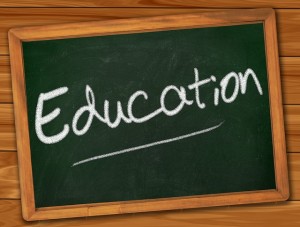 Most schools don’t teach logic because they don’t know what it is. They may have some vague idea about it, but basically they’re in the dark.
Most schools don’t teach logic because they don’t know what it is. They may have some vague idea about it, but basically they’re in the dark.
Logic was first written about, in the West, 2400 years ago. Plato and Aristotle were its fathers. It’s a magnificent legacy of Western Civilization.
Today, as the public school system is crumbling, we are in the age of information. In other words, when we need logic the most-because information is an unending flood that attempts to persuade and sway us-we’re missing vital tools.
Logic is a compass. It’s a system for navigating. We can use it to separate good information from bad.
Articles in the press, books, public-relations pronouncements, network news, political speech, scientific claims, internet journalism-it’s a huge stream that keeps on going. And at the root, it’s an attempt to argue for certain ideas and positions.
Information is a “battle” waged for our minds, and the minds of our children.
Do we want to outfit the young so they can have a way to judge and evaluate information, or do we want to abandon them and let them drift on the open sea?
In my 30 years as a free-lance journalist, I’ve seen “the permissive society” take the latter course.
It’s one thing to gift children with the heritage of freedom; it’s quite another thing to fail to give them the tools to be strong, rational, capable people.
As an investigative reporter, I’ve had to dig into intentional efforts to deceive the American people-in science, in politics, and in education. I’ve been able to do it because, many years ago, I studied logic with a wonderful college professor. He taught his classes how to separate the wheat from the chaff. He drilled us on the basic rules of logic.
Every high school student should be able to read an article and find the logical flaws in it.
Every student should be able to describe those flaws in detail.
Every student should be able to articulate the overall point the article is trying to make-and analyze whether the point is justified or not.
This is strength. This is power. This is independence.
The Founders of this country didn’t risk their lives to establish a nation based on freedom of the individual, only to see it go down the drain because children are denied the tools to gain true independence.
As I say, logic is a magnificent legacy of Western civilization. Our schools are casting that legacy aside without a second thought.
If you were to read some of the vital American political debates that occurred in the 18th and 19th centuries-for example, the Lincoln-Douglas debates-you would see that these politicians were expecting their audiences to follow a logical train of thought.
Logic used to be taught in American schools. It was an important part of the curriculum. Not so, anymore. Now, we rely on slogans and social engineering and “group-think.”
We need to reverse this trend. The place to do it is in home schools.
I’ve been pleasantly surprised by the response to my series of articles on home-schooling and logic. Parents keep contacting me to say they’ve been waiting for a real course on logic and analysis. They’ve been hoping for material that would engage their children in a real way, so these children would be able to face up to the flood of non-stop information coming in their direction.
Why all this interest? It’s because many home schoolers want to escape the herd mentality that has become more and more prevalent in our society.
Here is a quote from a note a parent sent me:
“I want my son and daughter to be able to think for themselves, instead of going along with the group. However, I don’t want them to become mindless rebels. They should be able to stand strong and take a rational approach to the PR and propaganda that is being doled out 24/7 in the media and on the internet. Simple rote learning in the classroom is important, but it’s not enough.”
I have looked at passages of text that are used in public schools, to educate students in so-called “critical thinking.” What I’ve found is very sad. These passages are sanitized. They are carefully tailored to be politically correct, for fear of offending some group or special interest. In no way do they resemble information that’s found in the real world.
Way back when, in high school, I had a history teacher who presented us with passages written by various socialists. He said, “The only way you’re going to understand socialism is by reading its ideas. I’m going to give you that opportunity, and then I’m going to demand that you analyze those ideas to within an inch of your life. I’m going to make you think. I’m not going to shield you from that philosophy or protect you from it. If I did that, I’d be shortchanging you and your parents, who are paying for your education.”
And we read passages written by socialists, and by the time the teacher was through with us, we understood a great deal about that philosophy. We understood the hidden ideas in it. We could write about the kind of perverse society that would take over if socialists won the war of ideas.
It was a very bracing experience, and it was my introduction to logic. That teacher knew logic. He showed us a list of traditional logical fallacies, and he made us compare that list to what socialists were enunciating. We saw how socialists were manipulating and twisting logic to secure their goals.
It was my first glimpse of the power inherent in real logical analysis, and when I went on to college and studied logic on a deeper level, I gained even more ability to take information apart and put it back together again.
This year, when I wrote my own logic course for home schools, I decided to include passages of text that approximated the material a young student would find on the internet, on television news, in newspaper articles and political press releases.
I rejected the idea of presenting a fantasy world to the student.
Logic and the founding of America have a great deal in common. They both prepare a young person for adulthood in a free and open society. Today that society is sinking further into passive collectivism and group-think. Therefore, it’s more important than ever that we give children tools they can use to dismantle and dissect false information-with strength, insight, and sharp minds.
Jon Rappoport has been working as an investigative reporter for 30 years. Nominated for a Pulitzer Prize early in his career, he has published articles in LA Weekly, Spin Magazine, Stern, CBS Healthwatch, and other newspapers and magazines in the US and Europe. He has taught in several private schools in New York and Los Angeles, and has tutored extensively in remedial English at Santa Monica College. At Amherst College, where he graduated with a BA in philosophy, he studied formal logic under Joseph Epstein, a revered professor of philosophy. Mr. Rappoport can be reached at qjrconsulting@gmail.com
Article Source: http://EzineArticles.com/?expert=Jon_Rappoport
